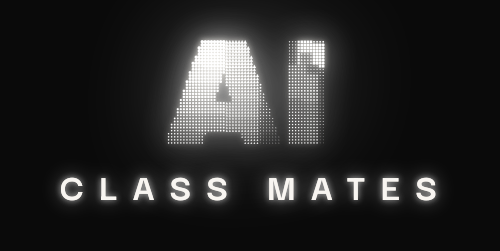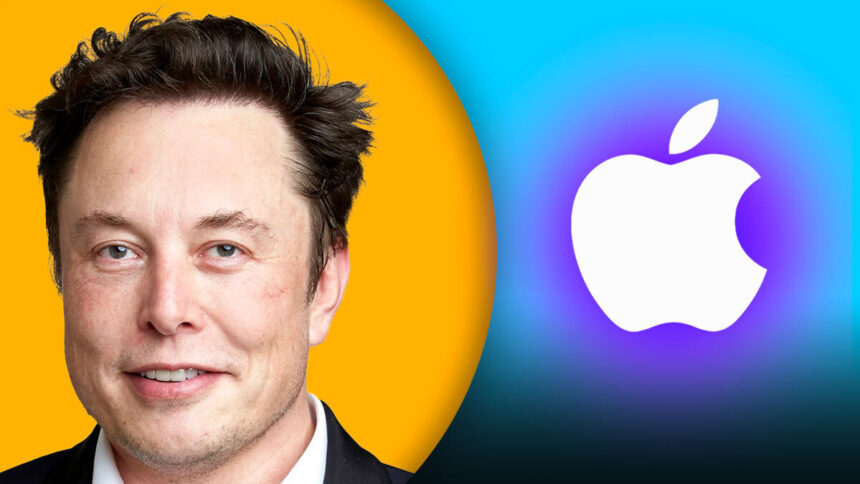The digital world is a high-stakes arena where tech titans clash over market dominance and the future of technology. At the center of a recent and increasingly heated dispute are three massive players: Elon Musk, a relentless disruptor with his AI chatbot, Grok; Apple, the gatekeeper of the lucrative and powerful App Store; and OpenAI, the company behind the groundbreaking ChatGPT.
- The Genesis of the Grudge: Musk’s Fiery Accusations
- The App Store’s Stance: Navigating the Policy Labyrinth
- Deconstructing the “Favoritism”: A Comparative Analysis of ChatGPT and Grok
- The Broader Implications for the AI Landscape
- Practical Tips for Readers: Navigating the AI World
- The Verdict and the Future
The latest round of this tech drama isn’t just a corporate rivalry; it’s a pointed accusation from Musk himself, claiming that the App Store is not a neutral playing field but a rigged game that gives ChatGPT an unfair and illegal advantage.
This article will delve into the heart of this controversy, examining the claims of favoritism and the complex policies of the App Store to determine if there’s any truth to the notion that Apple is tilting the scales in favor of its new partner.
The Genesis of the Grudge: Musk’s Fiery Accusations
This particular storm began brewing on social media, as is often the case with Elon Musk. Through a series of fiery posts on his platform X, he unleashed a barrage of accusations against Apple, labeling their actions an “unequivocal antitrust violation.”
His frustration stemmed from the apparent discrepancy in app rankings, where despite what he perceived as Grok‘s superior functionality and surging popularity, it consistently ranked lower than ChatGPT in the App Store‘s “Top Free Apps” category.
Musk’s argument extended beyond simple rankings, questioning why neither X nor Grok were ever featured in Apple‘s editorially curated “Must Have” sections, a form of promotion he sees as a deliberate act of exclusion.7
He linked this alleged bias directly to the recently announced partnership between Apple and OpenAI, which integrates ChatGPT‘s technology deeply into iOS, iPadOS, and macOS.
To Musk, this partnership isn’t a mere collaboration; it’s a strategic maneuver designed to give OpenAI an unbeatable, platform-level advantage.
He has even threatened legal action, asserting that Apple’s behavior makes it “impossible for any AI company besides OpenAI to reach #1 in the App Store.”
This public feud has reignited the long-standing debate over the power of platform owners and their influence on competition, and it’s a story we’ve seen play out before, though never with such high-profile AI contestants.
For a comprehensive look at how this all unfolded, you can read more about Musk‘s specific statements and the ensuing reactions.
The App Store’s Stance: Navigating the Policy Labyrinth
To properly evaluate Musk‘s claims, one must first understand the intricate policies of the App Store. Apple has consistently and publicly defended its platform, insisting that it operates as a fair and unbiased marketplace.
In a statement addressing the allegations, the company clarified that its editorial selections and algorithmic rankings are based on “objective criteria” such as user experience, app quality, and user engagement, not on business politics or partnerships.11
The App Store‘s rules are notoriously strict, and every developer, regardless of size, must abide by them. These guidelines govern everything from the 30% commission on in-app purchases a policy at the heart of many past legal battles to the stringent review process that can reject an app for a variety of reasons, including content and security.
While Musk points to a pattern of exclusion, Apple maintains its goal is to offer a safe and reliable experience for its users. The company has also noted that other AI tools, such as DeepSeek and Perplexity, have also managed to reach top positions in the App Store rankings, directly contradicting Musk‘s claim that it is impossible for others to succeed.
The complexity of these guidelines makes a direct comparison difficult, but understanding them is key to seeing the full picture of this unfolding drama.
You can explore the official App Store Review Guidelines for yourself to get a sense of just how detailed these policies are.
Deconstructing the “Favoritism”: A Comparative Analysis of ChatGPT and Grok
The core of this debate lies in the perceived differences in how ChatGPT and Grok have been treated by the App Store. The reality is far more nuanced than a simple case of favoritism. When OpenAI launched its official ChatGPT app, it arrived with a tidal wave of pre-existing public interest and media hype.
This organic popularity was a powerful catalyst that catapulted it to the top of the charts almost instantly, a phenomenon that aligns perfectly with Apple‘s algorithmic ranking system, which heavily rewards downloads and user engagement.
Furthermore, ChatGPT‘s business model, which offers a robust free tier alongside a premium subscription, fits seamlessly into Apple’s established in-app purchase ecosystem.
While the recently announced partnership is significant, Apple maintains that the app’s success on the platform was a direct result of user demand, not back-room deals.
Grok‘s journey, on the other hand, has been different. As a newer player, its success is intrinsically linked to its integration with the X platform, which may present different technical and policy-based challenges.
User reviews have at times noted issues with the app’s functionality or its integration, which can negatively impact its user ratings and, consequently, its App Store ranking. While Grok has demonstrated impressive capabilities and has a loyal following, it has yet to achieve the same level of global, mainstream buzz that ChatGPT garnered.
The perceived challenges Grok faces may be less about deliberate suppression and more about the competitive nature of the App Store itself, where even a great product can struggle to gain traction without the kind of viral momentum that ChatGPT enjoyed from its public launch.
The Broader Implications for the AI Landscape
This legal and public feud is much more than a spat between two tech billionaires; it has far-reaching implications for the entire AI landscape. It exposes what is known as “platform risk,” the immense power that a handful of companies, like Apple, hold over the entire industry.
For an AI startup, a great product is not enough; its success is dependent on the goodwill and policies of the platform where it is distributed. The fact that a single platform can effectively control the discovery and monetization of AI innovations raises serious questions about competition, consumer choice, and the future of open innovation.
This isn’t just about Musk and Apple; it’s a microcosm of the larger antitrust debate that is currently unfolding in governments around the world.
The outcome of a potential lawsuit or even the public scrutiny generated by Musk‘s accusations could set a precedent for how exclusive partnerships and platform policies are regulated in the future.
As new AI models continue to emerge from companies like Google and Anthropic, the power dynamic between AI developers and platform owners will only become more critical.
Practical Tips for Readers: Navigating the AI World
In the midst of this corporate drama, it’s important for consumers to stay focused on what truly matters: making the most of the incredible AI tools now available to us. Here are some practical tips to apply in your daily life:
First and foremost, you should diversify your AI toolbox. While the headlines focus on the rivalry between ChatGPT and Grok, each AI has its own strengths.
ChatGPT is renowned for its versatility and general knowledge, while Grok‘s real-time access to information from X can make it a superior tool for staying on top of breaking news and trending topics. By using multiple AI models, you can get different perspectives and find the best tool for each specific task.
Next, you must learn to look beyond the rankings and understand the nature of “walled gardens.” Be aware that tech ecosystems like Apple‘s App Store or Google Play are not truly open marketplaces.
They have rules, business models, and strategic alliances that can influence what you see and what you download. By actively searching for alternatives and reading independent reviews, you can make more informed choices.
Finally, stay informed and use AI responsibly. The rapid pace of AI development means that the tools you use today could be replaced by a new, more powerful version tomorrow. Follow reputable tech news sources and experts to stay ahead of the curve.
And always remember that an AI is a tool, not an infallible source of truth. Double-check facts, be mindful of the potential for bias or “hallucinations,” and use AI to augment your own skills, not replace them.
The Verdict and the Future
While Elon Musk’s accusations against Apple are bold and have captured headlines, the public evidence does not definitively prove direct favoritism.
It seems more likely that the dynamics of the App Storen its algorithms, its business models, and its powerful network effects have simply created a difficult environment for new entrants, even for a high-profile competitor like Grok. The first-mover advantage and viral success of ChatGPT were simply too potent to be easily overcome.
This feud, however, is not without merit. It has brought crucial attention to the immense power held by a handful of tech companies that control the flow of information and technology to billions of people.
As regulators around the world turn their attention to this concentrated market power, the outcome of this particular rivalry could very well set a precedent for the future of AI competition.
For now, the best we can do is stay vigilant, remain informed, and continue to use the incredible tools at our disposal with a healthy dose of skepticism.
We want to hear from you. What are your thoughts on this battle of the titans? Do you think the App Store is fair? Share your opinions and experiences with Grok, ChatGPT, and other AI tools in the comments below.

